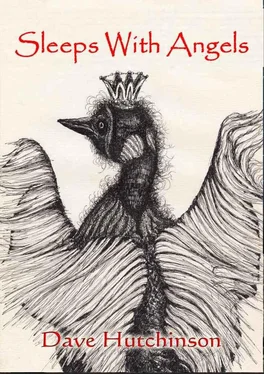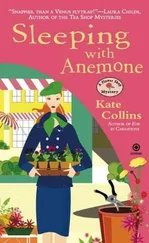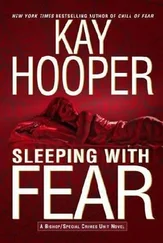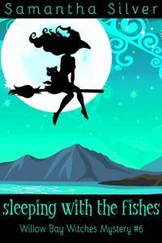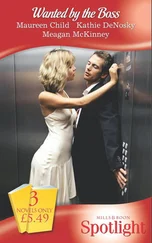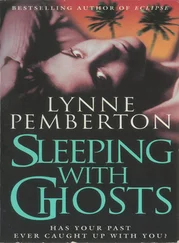On Rowland’s orders, Lew cleared the site and sent everybody home for the day. The three of us covered the floor with plastic sheeting and went and sat around a table in one of the portakabins, where nobody said a word for quite a while.
Finally, Lew said, “I assumed —”
“Shut up, Lewis,” said Rowland. Lewis reddened and looked out through the window. It had started to rain again. Rowland looked at me.
I raised my hands. “I’m only the chauffeur,” I said.
Rowland glared at me.
I sighed. “Lucius said he met them. He said he talked to one of them. He wrote that letter to Marcus, what, ten, fifteen years before he had this place built? If he was lying, he kept it going for a hell of a long time.”
“Why would he lie about something like that? What would he have to gain?”
“I don’t know.” I spread my hands. “The Romans weren’t like us.”
Rowland glared at me again.
“But they don’t appear anywhere else in the literature,” Lew protested.
“I told you to shut up, Lewis,” Rowland said again without bothering to take his eyes off me.
“I bet they do, though,” I said. “I bet somewhere, in some document nobody’s found yet, maybe something that’s been sitting in a drawer since the Eighteenth Century, there’s another description of them. There were only five of them; it’s not like they were some army that the Empire defeated, something that got celebrated in song and poetry and sculpture.” I sat back and thought of the five creatures. Maybe there had been more of them; maybe some had died when a Roman patrol out on the far fringe of the Empire had come across them and overwhelmed them. Maybe some more had died on the journey back to the capital. It must have been a hell of a trip; one of them, at least, had had time to learn Latin. I am told they lived in a bronze house .
Rowland blinked at me, and I knew he had just had the same thought, and my heart sank.
“Call me when you get there,” Rowland told me.
“This isn’t fair, Rowland,” I said. “I have a life of my own.”
He smiled and watched the crowds circulate around us in Terminal Two at Heathrow. “Imagine the story you’ll be able to sell, Jim,” he said.
“It’s no good appealing to my venal side,” I said, but it was pointless. I looked over at Lew, who was sitting miserably a few feet away with our cabin baggage piled around him. Lew was being sent with me as punishment for not telling Rowland about the red figures immediately. He didn’t look like a man who was in on the ground floor of one of the greatest archaeological discoveries in history. But then, I supposed, neither did I.
“What are you going to be doing while we’re poking around in the Danube delta?” I asked Rowland.
“You’re right about the literature,” he said. “There has to be some corroboration somewhere. It might be in a pile of documents nobody’s ever read. It might be in a private collection. Someone’s got to look for it.”
“And it’s not as though you’d ever have to leave your armchair to do it, right?” I said sourly.
“And it never occurred to you to wonder what happened to the homunculi after they had been killed in the arena,” he noted.
I opened my mouth. Then I closed it again.
“Somewhere in Rome,” Rowland said with a smug grin on his face, “there is a midden full of bones and little horned skulls. You mark my words.”
“Probably a hundred feet under an office building,” I said.
“Still there, all the same.” He looked at his watch. “I’m booked on the half past six flight to Rome. We’ll see.”
I checked my own watch. “We’d better go and check in.” I stood up and nudged Lew, and he half-heartedly began to gather our bags together. “You don’t think we’re being just a little bit too enthusiastic, do you?” I asked Rowland. “Lucius could have made it all up.”
Rowland shook his head. “He wasn’t the type. He couldn’t be bothered to be creative unless money or prestige were involved. What did he have to gain? Who was he going to impress with a story like that? He could show his guests the pictures on his floor. Who would care?”
“ He wasn’t like us, Rowland ,” I said, wanting to shake him. “We don’t know what he thought was important. Telling his friends that he’d met a bunch of aliens might have made him everybody’s favourite neighbour.”
Rowland sighed. We’d gone over and over this argument in the portakabin at Stafford Bishop, while the rain poured down and Lew sat sulkily in a corner. Lucius hadn’t known what the homunculi were, and he hadn’t cared, particularly. The little red men with the horns had been oddities, a good story to tell his mates, and once they were dead there hadn’t been any more of them and they’d just dropped straight out of history — unless Rowland was right and someone else had used them as their model for the classical image of the Devil. Maybe a skull had turned up in Rome decades later. A horned skull. That might have got people’s attention, particularly if the records of the homunculi had been lost. Somehow, over a series of increasingly fraught calls on my mobile — one of which had actually involved yelling — Rowland had managed to convince, cajole and variously blackmail a number of people into giving us quite a lot of money to fund our separate investigations. I didn’t want to know the details. I did know that a large sum of cash had suddenly appeared in my bank account, which was interesting.
“You really think Lucius sat in a holding cage in the Colosseum and had a conversation with the Devil?” I said. “And then the Devil and his friends went upstairs and were slaughtered for the entertainment of a few thousand Romans?”
“Is that any more outlandish than believing that they landed on the Black Sea coast in a bronze starship?”
“Oh, quite possibly,” I said.
“Not the Devil, Jim,” he reminded me. “Something which became the model for the representation of the Devil.” He shrugged. “Myself, I think they’ll still turn out to be a branch of Homo sapiens. A completely unknown branch of Homo sapiens. There’s a very strong chance that we’re about to make history.”
“I have a very strong urge to punch you,” I told him.
“And if you do turn out to be right, and there are starship remains in Romania, you and Lewis are going to be the most famous men on Earth.”
We looked at Lewis. Lewis, I felt, was not going to be very good company. “I still have a very strong urge to punch you.” I also had a very strong urge to punch Lewis.
Rowland glanced up the departure boards. “They’re calling my flight.”
“Excellent,” I said. “Have a nice time in Italy.”
He picked up his carry-on bag, which in typical Rowland fashion was almost the size of a normal person’s suitcase, but that didn’t matter because he’d be able to talk the cabin staff into letting him take it onto the plane.
“Stay in touch,” he told me as he started to walk towards his gate. “We have to coordinate things. If Romania turns out to be a dead end, you can join me in Rome.”
“All right,” I said. “Good luck.”
“You too,” he said.
I watched him walk away through the crowds of holidaymakers and business people in the terminal, a stout little pensioner moving with a great and terrible purpose, setting out to rewrite human history.
“And you never know,” he called over his shoulder. “It might really have been the Devil.”
v
Stories start with a lot of things — a word or a phrase or a line of dialogue or a place. This one started with the description of Rowland eating his fish and chips, I have no idea why. A lot of the time, the idea cooks for a while and doesn’t go anywhere, but this one had legs. Putting a story together, for me anyway, is just an exercise in answering questions. Jim and Rowland are in the restaurant for some reason. What is it? Jim’s driving Rowland somewhere. Why? Where? You answer questions like this, and other questions come up, and you answer them too, and at some point the story’s finished. I’m a ferociously idle writer; I find it very hard work, and this one was hard to get right. I’m still not sure I’ve managed it.
Читать дальше
